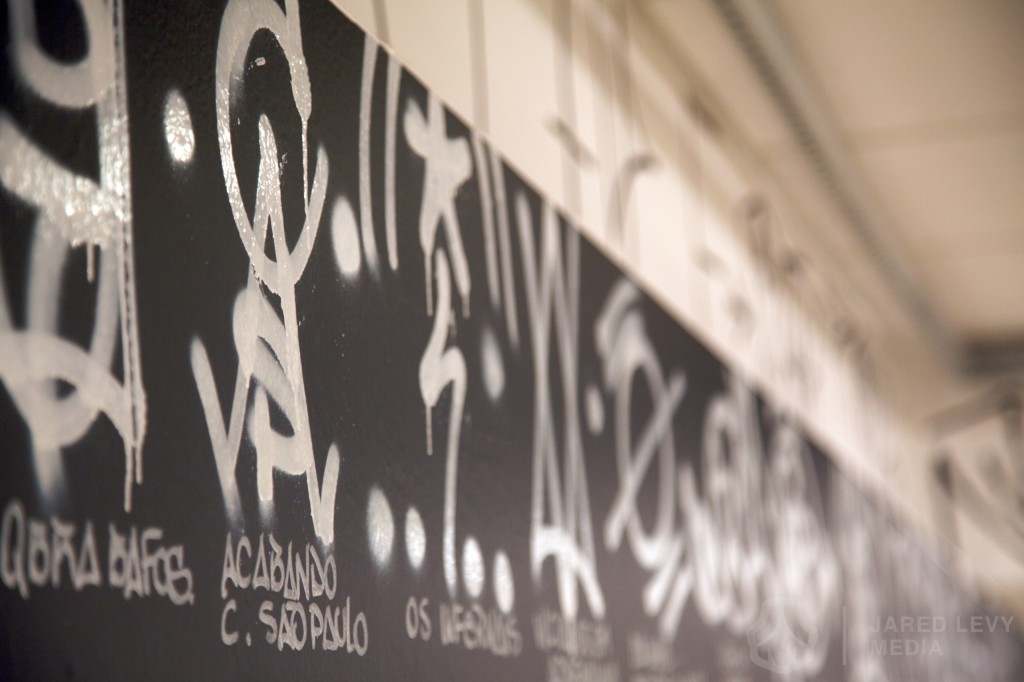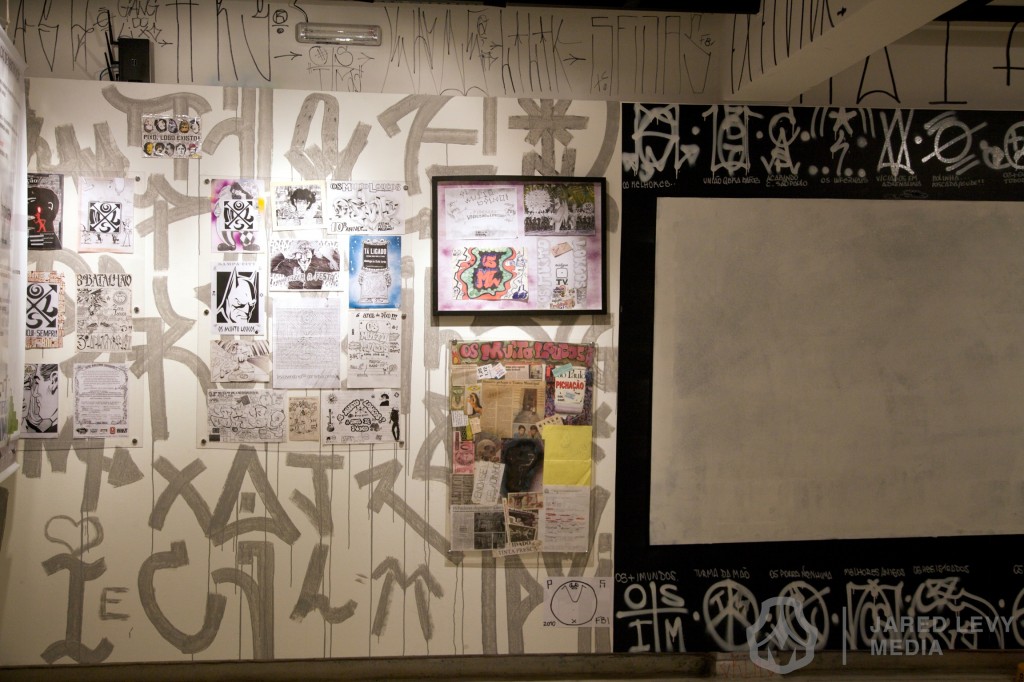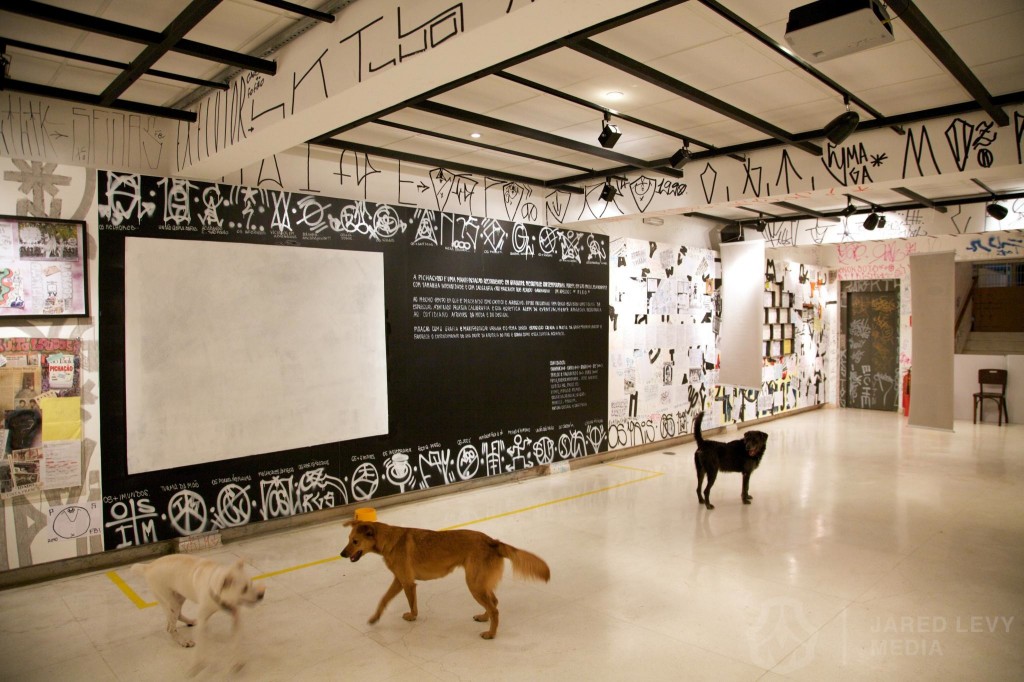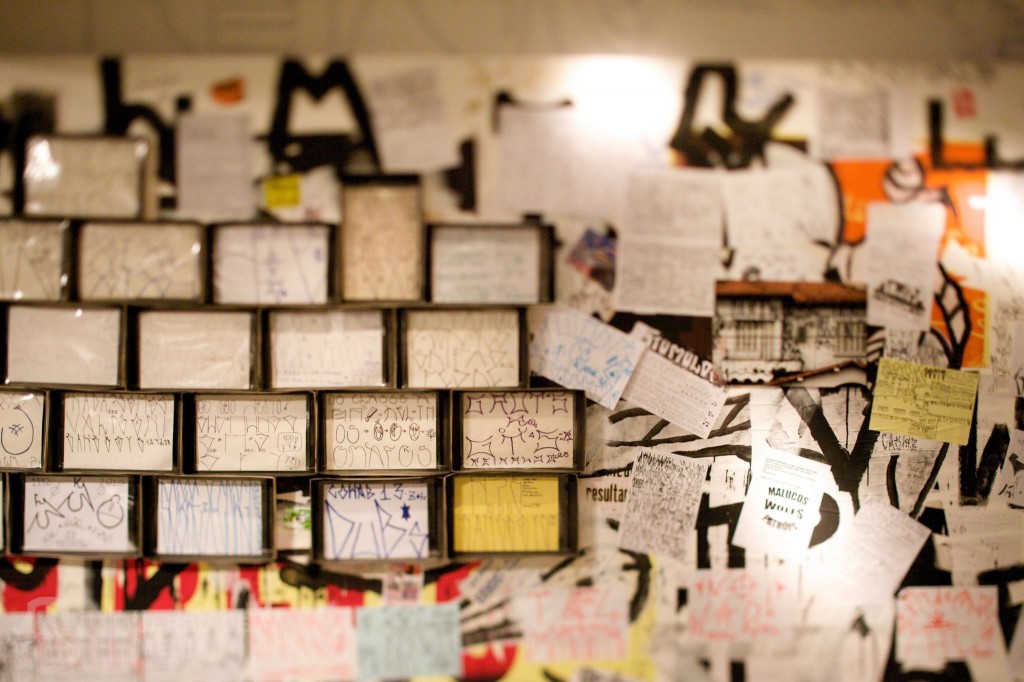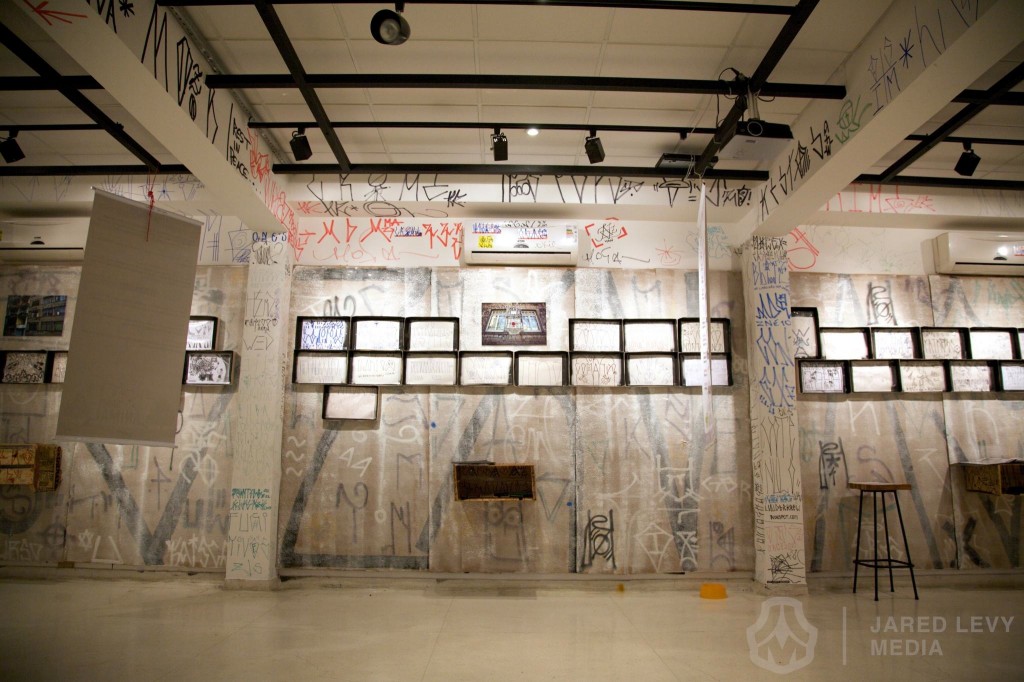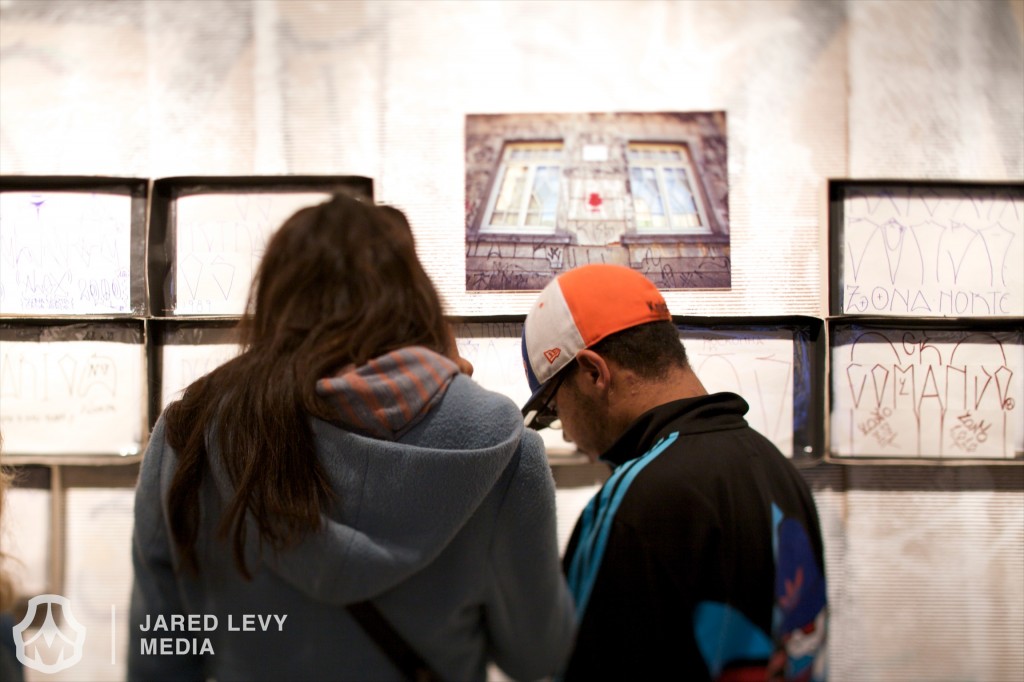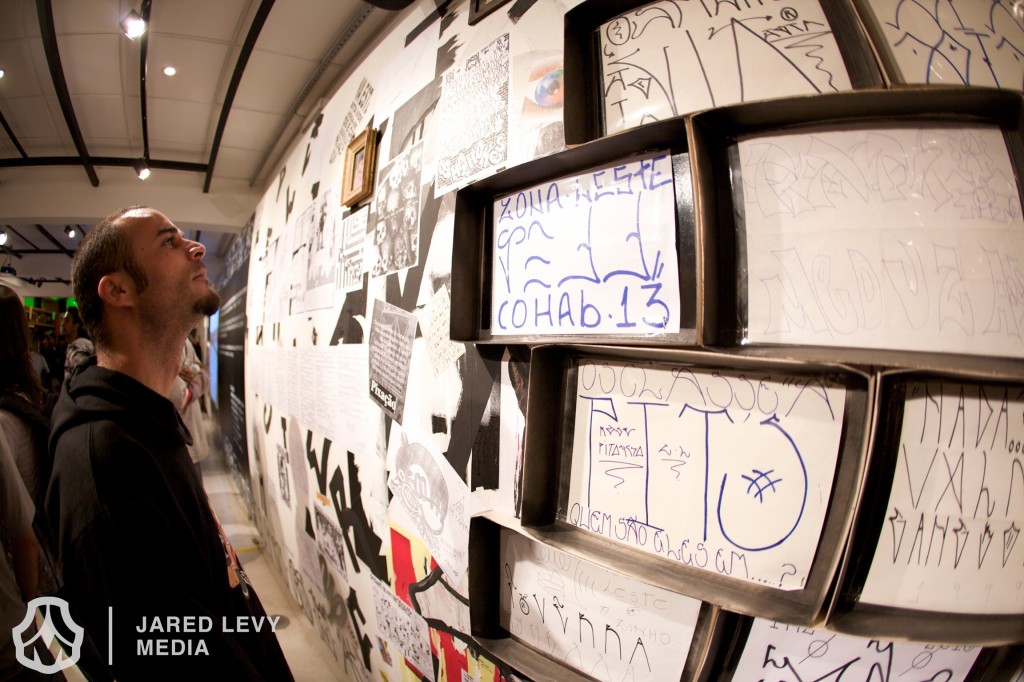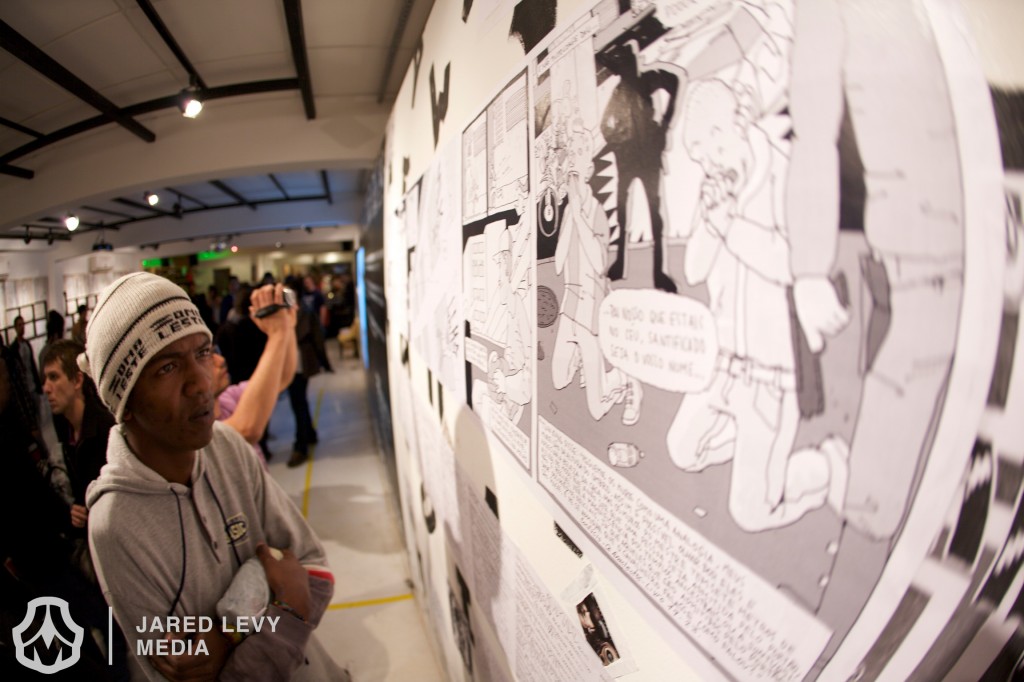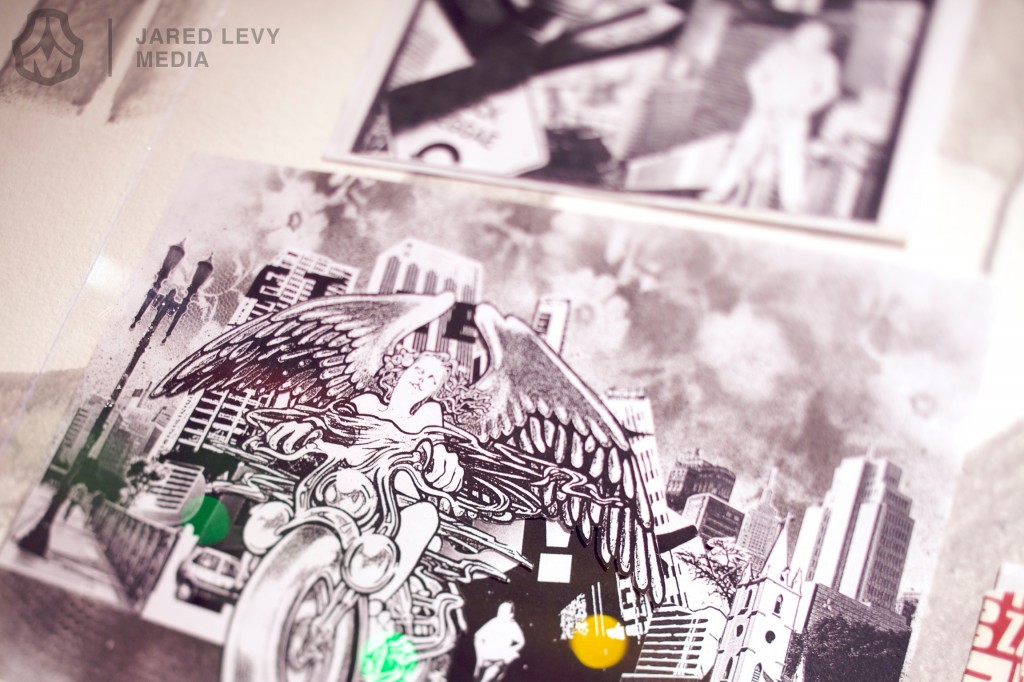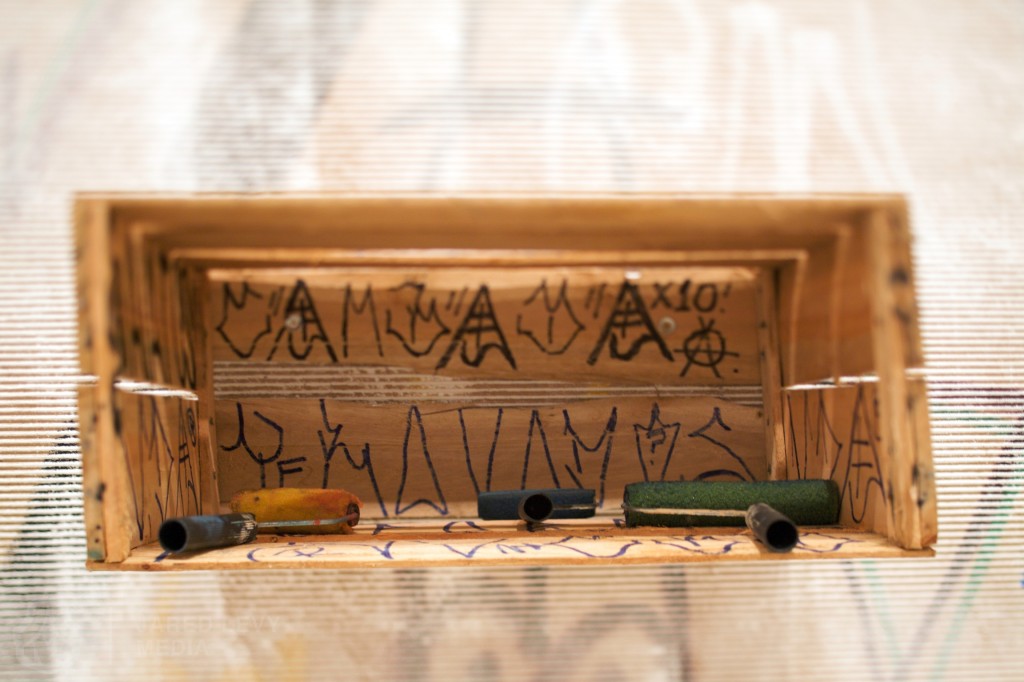 Demetrio Portugal facilitated the building and curatorial process of this exhibition in a way that maintained the collective and non-hierarchical form of organization of Pixadores. He also mediated three debates on the theme with a large presence of Pixadores crews and the general public.
Demetrio Portugal facilitated the building and curatorial process of this exhibition in a way that maintained the collective and non-hierarchical form of organization of Pixadores. He also mediated three debates on the theme with a large presence of Pixadores crews and the general public.
VIDEO PRODUCED BY PIXADORES:
RELATED VIDEOS:
Known as one of the first exhibitions about Pixação, an urban graffiti expression typical of São Paulo, this exhibition explored the social dynamics of their “crews” and highlighted it’s manifestation also as an index of social abyss. Despite being tough and aggressive, Pixação achieves its goals of protest and expression, even if it is not accepted or understood by the general public.
The Pixação intervention achieves its goals even though it is not accepted and understood by the general public. This artistic expression is known for being tough and aggressive in the streets of São Paulo. It involves the destruction of private property as part of its aesthetic, which serves as a way to fight back against the oppressive conditions of poverty and lack of social attention. a fight back bottle massage written on walls that pass through car armored glasses, and shouts how much alive a human being can be despite the poverty, the lack of social attention and a perspectiveless life.
The exhibition showcased 20 years of the Pixação scene, including crew party invitations and poster designs, signature collections on sheets of paper, Pixação sticker albums, videos, photos, and movies. Along with contextualizing artistic elements, the exhibition revealed the complexity of its social organization and intervention methods, highlighting Pixação as a way of life and a way to defy the segregation and invisibility that the megalopolis brings to its citizens. Demetrio Portugal facilitated the building and curatorial process while maintaining the collective and non-hierarchical Pixadores form of organization, and mediated three debates with the crews of Pixadores and the general public.

Historical Pixação Signature Book
This exhibition distinguishes itself from others about the Pixação movement by bringing together the founders’ groups from the five regions of São Paulo in one room. It raises the understanding that Pixação is much more than an aesthetic intervention made in a non-hierarchical way, but rather a phenomenon from the city as a living being.

Chomic story made by Paulo Ito about Pixação intervention, lately intervened by the audience.
Among hundreds of thousands of participants, Pixação is an extreme form of art with a high mortality rate due to gang fights, conflicts with the police, building falls, and other dangers.
The legitimacy of the exhibition was derived from the scene itself, which, instead of its usual aggressiveness and destructive interventions, participated in the exhibit with aesthetic accord and reverence. “I am grateful to have honored this contemporary expression in this way,” says Demétrio.
PHOTOS BY VICTOR MORYAMA:
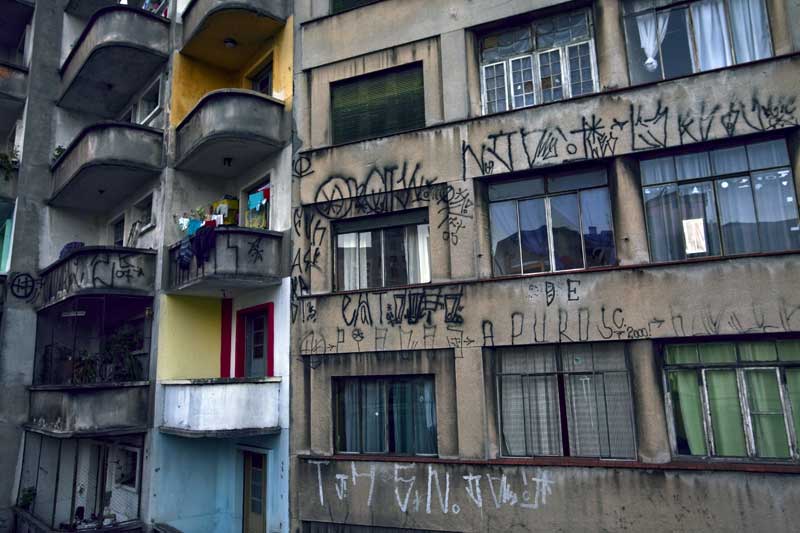



PHOTOS ABOUT THE EXHIBITION LAST DAY.
By Jared Levy
